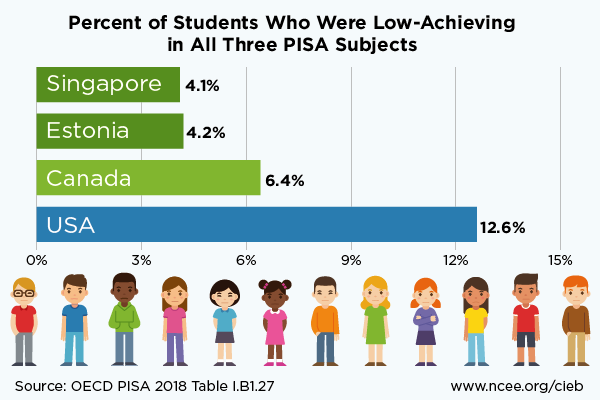01.23.2020

The United States saw nearly twice the rate of low-achieving students in reading, math and science on PISA 2018 compared to Canada, and three times the rates seen in Singapore and Estonia. Low-achieving students are those who scored below PISA’s baseline level of proficiency, defined as level 2 on a 6 point scale, in reading, math and science. For a look at how the U.S. and other education systems can help low-performing students acquire the competencies the changing global economy will demand of them, listen to Anthony Mackay’s Global Ed Talks podcast interview with Rebecca Winthrop, senior fellow and director of the Center for Universal Education at the Brookings Institution. In her recent book, Leapfrogging Inequality, Winthrop and her co-researchers chart a new path for global education by examining the possibility of leapfrogging—harnessing innovation to rapidly accelerate educational progress—to ensure that all young people develop the skills they need for a fast-changing world.

